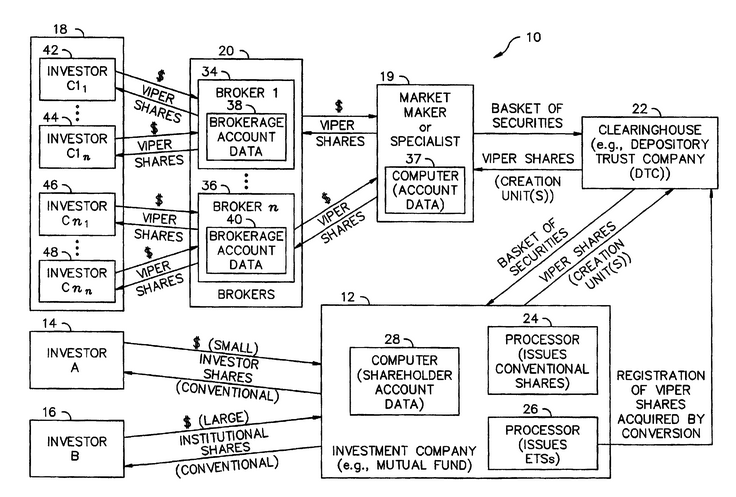- Vanguard's ETF as class of MF was innovative.
- Brokerage practices have made much of this patent no longer as desirable.
- While the patent's technique makes Vanguard great to invest in, its usefulness ironically shines when you are moving money to a different brokerage.

Since 2005, market experts have known about the unique characteristics of Vanguard’s patent regarding its ETFs, which were simply another “class” of their mutual funds. This patent allowed Vanguard to make its mutual funds more tax efficient and allowed investors to convert their mutual funds into ETF shares without triggering a tax event. With the expiration of the patent, Vanguard’s thus-far unique approach can now be also adopted by other investment companies.
But the question is, how popular will this approach be? For one thing, if I’m already holding Vanguard funds, I’ll probably notice nothing has changed, since there is no difference in how my funds will be treated. After all, the patent is not invalidated; it just expired, which means that it’s just no longer uniquely a feature of Vanguard’s funds. So, the question is, how popular will the change be?
My thought is that while the uniqueness of having an ETF and mutual fund be different classes of the same fund certainly helped in the past, ETFs have since become so popular that in the end it probably will not make much of a difference either. After all, for an investment company to take advantage of this arrangement, they will need to have both a mutual fund and an ETF tied to the same fund. But while it makes sense for mutual funds to add an ETF class, it does not go both ways.
In years past, mutual funds had the following features that weren’t as prevalent for ETFs: the ability to trade fractional shares and the ability to schedule investments ahead of time. At that time, ETFs had to be traded in whole shares, and there used to be some hefty trading commissions. In the past 4-5 years, the industry has shifted a lot — most brokerages no longer charge a trading commission, and fractional trading of ETFs have become more readily available. And while still not as widely available yet, some brokerages now allow for scheduled investments into ETFs, thereby eliminating the need for MFs altogether. (In fact, my advisory clients have access to Altruist, which allows me to set up custom portfolios of ETFs and auto-invests new money into the appropriate allocation at no additional commissions or fees beyond my advisory fees.)
So, with the elimination of trading commissions, the ability to trade fractional shares and even the ability to auto-schedule investments, ETFs are really the future. Plus, ETFs are highly portable if you should ever choose to transfer your brokerages, whereas mutual funds should not be moved without converting to ETFs, or they could incur transaction costs at the new brokerage when you try to sell them.
What does this mean for Vanguard’s patent and the other industry players? It’s a great convenience feature to be able to convert Vanguard’s mutual funds into their ETF counterparts without incurring any taxes or risking timing issues redeeming mutual funds and then having to wait until the next day to buy ETFs. But the convenience feature is great for moving funds out of Vanguard, but not necessarily into Vanguard. And with the changes in the ETFs and brokerage business practices, there simply isn’t a great need for investment companies to adopt the technique of this now-expired patent.
Granted, when I was trying to roll over one of my IRAs this week at Schwab, I had to sell my mutual fund position and when the market opened the next morning, it gapped up significantly, and I had lost about $500 just on that timing issue. So, I would have loved to have that feature at Schwab, but I’m sure this is not number on their priorities right now.
I definitely applaud Vanguard for having some smart folks back in the early 2000s to come up with such a smart technique. And I know many of us benefited from this, directly or not. But thanks to the progresses made in the industry, my guess is that this will not be a hotly pursued technique in the future, especially as many new investment companies just focus on forming ETFs rather than mutual funds.
If you have Vanguard mutual funds and are curious about how to convert them to ETFs, or if you have general questions about how to invest in ETFs, please reach out and let us know.
